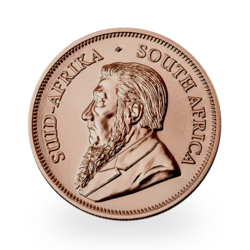France 5 aired a very interesting series of three documentaries on drug trafficking. Frenchmen are actually the ones who started it – in Indochina – and spread it toward the United States through the “French Connection”. Nothing to be proud of, really. In the third and last part, “On the Trail of Dirty Money” (airing until October 6), the documentary explains (starting at 45’) just how drug money laundering saved the banking system from defaulting during the 2008 crisis.
Is this an exaggerated statement? Let’s remember that Roberto Saviano, an investigative reporter made famous by his book on the mafia, Gomorra (2007), was stating the same thing in his following book ZeroZeroZero, an investigation into the cocaine trade, but, sadly, we haven’t heard as much about it. The whole of the eleventh chapter is dedicated to the matter.
The drug barons were the only ones holding large quantities of cash at a time when all banks were short of it, the documentary explains. They talk about $350 Billion laundered during that crucial period. Former dealers who went to prison and are now clean explain they were welcomed with open arms in banks when they were showing up with suitcases full of cash. The U.N. director in charge of the fight against drugs and crime says that “not a single international bank has been spared”.
For banks, money laundering is a winning operation: sentences are light and mostly monetary, they’re the result of some arrangements negotiated far from T.V. cameras, and the CEOs are always left alone. Anyhow, according to someone in charge of fighting money laundering in the documentary, only about 1% of that dirty money is found and confiscated.
And business goes on as usual. The documentary cites the case of South Sudan, a country created in 2011, one of the poorest in the world, where the main activity is... banking, “in direct link with Luxemburg”. More recently, there was the Danske Bank (the main Danish bank) scandal; the bank is accused of having laundered, between 2007 and 2015, the astronomical sum of 200 Billion euro! The bank’s director was simply fired, without being brought to justice... impunity still prevails. And to say that at the international level, it’s only considered a medium-size bank...
As gravely says a participant, “This money has a price: it’s the alteration of social and human relationships. That is because this money gives power to the ones distributing it, with rules that are different than ours. So it puts in question the whole social construct”. We constantly hear about fiscal fraud and “optimization” (quite understandable when taxes become too high), but the real menace to society is this money laundering.
This threatens the banks, so it threatens the account holders. What could happen with a new banking crisis? Could the drug barons sink a bank, just to make an example and impress, like the Fed did with Lehman Brothers? But beyond any dramatic events, we should be wary of a slow and deep perversion of our banking system taking place... nothing very assuring.
Reproduction, in whole or in part, is authorized as long as it includes all the text hyperlinks and a link back to the original source.
The information contained in this article is for information purposes only and does not constitute investment advice or a recommendation to buy or sell.

















